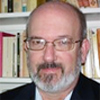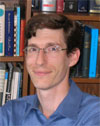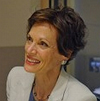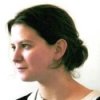
Faculty in British Studies at Columbia
The faculty in British Studies at Columbia represents a wide range of interests across the fields of History, English, and Political Science
Faculty Profiles
PhD Cornell 1987; BA Oxford (Rhodes Scholar) 1979; SB Literature and Mathematics, Massachusetts Institute of Technology 1977. Author of Dandies and Desert Saints: Styles of Victorian Masculinity (Cornell, 1995), and A History of Victorian Literature (Wiley-Blackwell, 2009), each named a Choice Outstanding Academic Book. From 1993-2000 he co-edited Victorian Studies, where he remains a member of the Advisory Board. He is currently at work on a project entitled The Uses of Inheritance: Identity and Agency in Britain, 1789-1895.
DPhil Balliol College, Oxford 1994; BA Yale 1990. Author of Moral Capital: Foundations of British Abolitionism. Research Interests include eighteenth-century Britain and the history of the British Empire from 1550-1850, with special attention to the British Atlantic, the history of the imperial state, and the comparative history of slavery and abolition.
Ph.D., University of California, Berkeley (1997); B.A., Williams College (1989). Sarah Cole specializes in British literature of the 19th and 20th centuries, with an emphasis on the modernist period. Areas of interest include war; violence, sexuality and the body; history and memory; imperialism; and Irish literature of the modernist period. She is the author of two books, Modernism, Male Friendship, and the First World War, was published by Cambridge University Press in 2003 and At the Violet Hour: Modernism and Violence in England and Ireland, (Fall 2012, Oxford University Press). She has published articles in ELH, Modern Fiction Studies, Modernism/Modernity, and PMLA, and has written essays for a variety of edited collections.

Nicholas Dames
Theodore Kahan Professor in the
Humanities
Professor of English and
Comparative Literature
PhD Harvard 1998; BA Washington University 1992. Author of Amnesiac Selves: Nostalgia, Forgetting, and British Fiction, 1810-1870 (Oxford, 2001); The Physiology of the Novel: Reading, Neural Science, and the Form of Victorian Fiction (Oxford, 2007). Professor Dames works on the history and theory of the novel, the history of reading, and the aesthetics of prose fiction, in Britain and Western Europe, from the eighteenth century to the present. He is currently at work on a book, The History of the Chapter in the West, which traces the development of the chapter from an editorial and scribal practice of late antiquity and early Christianity to a compositional practice of the European novel.
A.B., Harvard-Radcliffe (1993); Ph.D., Yale (1999). Jenny Davidson writes about eighteenth-century literature and culture; other interests include British cultural and intellectual history and the contemporary novel in English. She is the author of three novels, Heredity (2003), The Explosionist (2008), and Invisible Things (2010). Her two published academic books are Hypocrisy and the Politics of Politeness: Manners and Morals from Locke to Austen (Cambridge, 2004) and Breeding: A Partial History of the Eighteenth Century (Columbia, 2009). Forthcoming in 2013 are a new novel, The Magic Circle, and a small book on literary style.
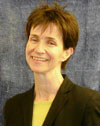
Eileen Gillooly
Associate Director of the Heyman Center for the Humanities
Associate Professor of English and Comparative Literature
PhD Columbia 1993; BA Scripps College 1977. Author of Smile of Discontent: Humor, Gender, and Nineteenth-Century British Fiction (Univ. of Chicago, 1999); co-editor of Victorian Prism: Refractions of the Crystal Palace (Univ. of Virginia, 2007) and of Contemporary Dickens (Ohio State, 2009). Current projects: a book about parental feeling in 19th-century middle-class Britain and an edition of David Copperfield (Norton Critical Edition). Research interests: England, Scotland, and Ireland in the 19th-century; 19th-century moral psychology; gender, feminist, and psychoanalytic theory.
PhD Princeton 2000; BA Cambridge 1994. Author of The Poetry of Indifference: From the Romantics to the Rubáiyát (Massachusetts, 2005) and Milton and the Victorians (Cornell, 2009). Professor Gray is also the editor of Tennyson's In Memoriam (Norton, 2004) and Spenser's The Faerie Queene, Book 2 (Hackett, 2006). His research interests include Romantic and Victorian poetry; poetry and poetics; English literature and the classics.
PhD New York University 2007; BA Yale 1999. Natasha Lightfoot specializes in emancipation, race, and labor studies within the fields of Caribbean, Atlantic World, and African Diaspora History.A She is currently working on a project tracing grassroots resistance and identity formation among emancipated people in Antigua.
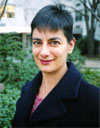
Sharon Marcus
Orlando Harriman Professor of English and Comparative Literature
Dean of Humanities, Faculty of Arts and Sciences
PhD Johns Hopkins 1995; BA Brown University 1986. Author of Apartment Stories: City and Home in Nineteenth-Century Paris and London (University of California Press, 1999); Between Women: Friendship, Desire and Marriage in Victorian England (Princeton University Press, 2007) Research interests include 19th-century British and French fiction; urban and architectural history; feminist and queer theory. Professor Marcus is currently completing a book about Sarah Bernhardt and the origins of modern celebrity. She has recently published essays in PMLA, Victorian Studies, and Theatre Survey; edited a special issue of Public Culture on celebrity; and and co-edited, with Katherine Biers, a special issue of Nineteenth-Century Theatre and Film on global performance networks.
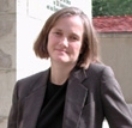
Susan Pedersen
James P. Shenton Professor of the Core Curriculum Professor of History
Susan Pedersen received her BA (Social Studies), MA and PhD (History) degrees from Harvard University, where she taught until joining the History Department at Columbia in 2003. A historian of British and international politics in the twentieth century, she is the author of Family, Dependence and the Origins of the Welfare State (Cambridge University Press, 1993) and Eleanor Rathbone and the Politics of Conscience (Yale University Press, 2004). Her most recent book, The Guardians: The League of Nations and the Crisis of Empire, was published by Oxford University Press in 2015. Pedersen teaches graduate courses on British history, international history, imperial history, and the history of state institutions. Together with Guy Ortolano at NYU and Peter Mandler at Cambridge University, she has founded a training collaboration which brings together graduate students working in the field of 20th century British history for regular workshops and seminars. Pedersen regularly reviews works in the field of British history and international history for the London Review of Books and The Guardian.
PhD University of Texas 2013. Dustin Stewart works on the literature and culture of the Restoration and eighteenth century. His research interests include poetry and poetics, religion and theological controversy, and Enlightenment studies. His published articles range from a short essay on Milton and Socinianism to an exploration of the Pauline letter in Regency prose writings, and his current book project is about speculative poetry and future states of the soul in Enlightenment England.
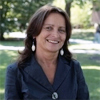
Nadia Urbinati
Kyriakos Tsakopoulos Professor of Political Theory and Hellenic Studies Science
PhD European University Institute, Florence 1989. Author of: Liberi ed uguali: critica dell'ideologia individualista (Laterza 2011); Representative Democracy: Principles and Genealogy (University of Chicago Press 2006; paperback 2008; Italian translation by Donzelli, 2009 and 2010); Mill on Democracy: from the Athenian Polis to Representative Government (University of Chicago Press, 2002; Italian translation by Laterza 2006), which received the David and Elaine Spitz Prize as the best book in liberal and democratic theory published in 2002; she edited with Steven Lukes, Condorcet's Political Writings (Cambridge University Press, 2011); she edited with Stefano Recchia, A Cosmpolitanism of Nations: Giuseppe Mazzini's writings on Democracy, Nation Building and International Relations (Princeton University Press, 2009); She edited with Alex Zakaras a collection of essays, John Stuart Mill's Political Thought: A Bicentennial Reassessment (Cambridge University Press 2007), has published several books in Italian, and edited with Carlo Rosselli, Liberal Socialism (Princeton University Press, 1994) and with Piero Gobetti, On Liberal Revolution (Yale University Press, 2000) . She co-edited Le socialisme liberal. Une anthologie: Europe-Etats-Unis with Monique Canto-Sperber (Editions Esprit, 2003; Italian translation by Marsilio/Reset 2004). Research interests include democratic theory; anti-democratic thought; theories of representation and sovereignty; ancient and modern political thought; theory of resistance and consent.
PhD Brandeis 1982; BA Harvard 1975. Author of Prophetic Sons and Daughters: Female Preaching and Popular Religion in Industrial England (Princeton, 1985); The First Industrial Woman (Oxford, 1995); The Social Life of Money in the English Past (Cambridge, 2006); Milk: A Local and Global History (Yale, 2011), along with contributions to A Companion to Gender History (2004) and The Oxford Encyclopedia of Economic History (2003), essays and articles on work, poverty, food history, and eighteenth-century population history. She is currently at work on a project on a cultural history of sensory and aesthetic experience in eighteenth-century Britain.
PhD University of Texas 1999. Author of Casualties of Credit: The English Financial Revolution, 1620-1720 (2011) and co-editor of David Hume’s Political Economy (2008) and Mercantilism Reimagined: The Political Economy in Early Modern Britain and its Empire (2013). Research and teaching interests include early modern European and Atlantic economic history and history of political economy.
PhD Cambridge 2005; MPhil Cambridge 1999; BA Cambridge 1998. Author of "German fresco painting and the new Houses of Parliament at Westminster, 1834-51" The Historical Journal, 47 (2004), pp. 291-329 and "Between Louis and Ludwig: from the culture of French power to the power of German culture, c. 1789-1848" in H. Scott and B. Simms, eds., Cultures of Power in Europe during the Long Eighteenth Century (Cambridge, 2007), pp. 348- 68. Research interests include the cultural and intellectual history of late-eighteenth and nineteenth century Britain and Germany, particularly the concept of taste, processes of taste-making, and the role of tastemakers; cultural change, intercultural transfer, and trans-national exchange; nationalism and the construction of national cultures; state promotion of the arts, aesthetic approaches to governance, and the interaction between art, politics, and religion.

Rebecca Woods
Lecturer in History
Fellow, Columbia University Society of Fellows in the Humanities
Rebecca Woods received her PhD from MIT's History, Anthropology, Science, Technology, and Society Graduate Program in 2013. Woods's research explores the intersections of science, environment and the economy in the context of the British Empire in the long nineteenth century. During her tenure at the Society of Fellows, Woods will begin work on a new projectNan epistemological and environmental history of cold, provisionally entitled Suspended Animation: Science, Nature and the Economy of Cold. This work will trace ideas of, and engagements with, cold itself through scientific experimentation with low temperatures, arctic exploration, and the commoditization of ice and cold in the nineteenth century. Sometimes a structuring limit to human endeavor, at others an obstacle to be overcome, or a profitable resource upon which to be capitalized, cold served both as a phenomenological reality and increasingly as an object of inquiry and exchange in the imperial world of the nineteenth century. Scientists, engineers, entrepreneurs, and an avid consuming public each engaged with, and in so doing, reshaped cold as a basic element of the natural world and one that structured much of human existence.

